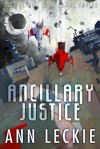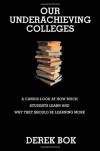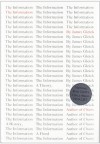Currently reading
McGlue
Knife Fight and Other Struggles
Far from the Tree: Parents, Children, and the Search for Identity
The Good Lord Bird
Ancillary Justice
Our Underachieving Colleges: A Candid Look at How Much Students Learn and Why They Should Be Learning More (New Edition)
Dissident Gardens
Nightmare Movies: Horror on Screen Since the 1960s
The Information: A History, a Theory, a Flood
Complete Novels
 I began this book, a careful extrapolation of what might happen to the world if humanity up and disappeared, about three weeks ago. I enjoyed it, for many reasons delineated in the positive reviews below and in raves in various press outlets. But a hundred pages in, I got caught up in other things.
I began this book, a careful extrapolation of what might happen to the world if humanity up and disappeared, about three weeks ago. I enjoyed it, for many reasons delineated in the positive reviews below and in raves in various press outlets. But a hundred pages in, I got caught up in other things.I finished it while on the plane rushing Eastward, about three hours after I'd heard that my father had unexpectedly had a heart attack. So forgive this mordant self-indulgence, but I read the book's very concretely-detailed attention to the devastating footprint of our collective human lives on planet Earth while engaged in far more abstract noodlings about what it would mean to be on a world without this person, or that one.
I have this odd fascination with end-of-the-world plots, doomsday scenarios. At age 17 I read Jonathan Schell's _The Fate of the Earth_ and wrote a slew of essays (in high school and college) on the inevitability of human annihilation; I think I lost my faith in any supernatural dimension at the same time I came to a strange faith in human destructiveness. And, of course, I was also 17, 18, 19--at the peak of my self-destructive capacities, uncertain I had a place in the world, or uneasy in the place I'd been allotted through nature and nurture's respective lotteries. Pissed off or plain pissed for many of those years, I saw in the world (like any good adolescent) nothing but echoes of my own self-loathing and fears. Or maybe that's unfair--maybe end of the world scenarios are ways to step outside one's self.
This won't be wrapping up neatly, by the way. I warned you--it's self-indulgent. No neat conclusions about my self, and no carefully-boxed connections of self, book, world. I'm riffing.
I have continued my appreciations, fictional (Stephen King's _The Stand_ just one of many books sating my apocaphilia) and nonfictional (Richards stand out: Rhodes on prions [meat will kill us all!], Preston on Ebola [viruses will bleed us out!]). After I finished this Weisman book, I picked up Jeff Carlson's sci-fi(ish) thriller _Plague Year_, which wasn't great but hit a spot. (Finished it as the plane taxied in to the airport and I headed out to meet my brother and go to the hospital.)
What I remember about all these books is how they prompted social engagement I might not have otherwise attempted. Schell got me politically engaged in anti-war movements, far beyond the scope of anti-nuke talk. As often, I gave the books to my father--whose appreciation for the works varied (he's no apocaphile), but who appreciated in a more subtle way the effort to imagine how bad things are, how bad we've made things, as tools for helping us to imagine how things might be. I think in talking with my Dad about these books, I slowly learned how to escape my self and that sense of my own ending and instead found ways, through the darkest and most pessimistic of scenarios, to keep pushing on my sense of how to be a good human being in the world.
Weisman, he says to anyone who even thinks this rant has much to do with the book anymore, may be corrosive in his accounting for the destructive force of humanity, but this isn't a hopeless book. To imagine the world without us is to seek to find ways to make sense of our selves in the world.
I passed the book on to my dad, and he seems to be really enjoying it. (He found the Carlson pretty dull.)












